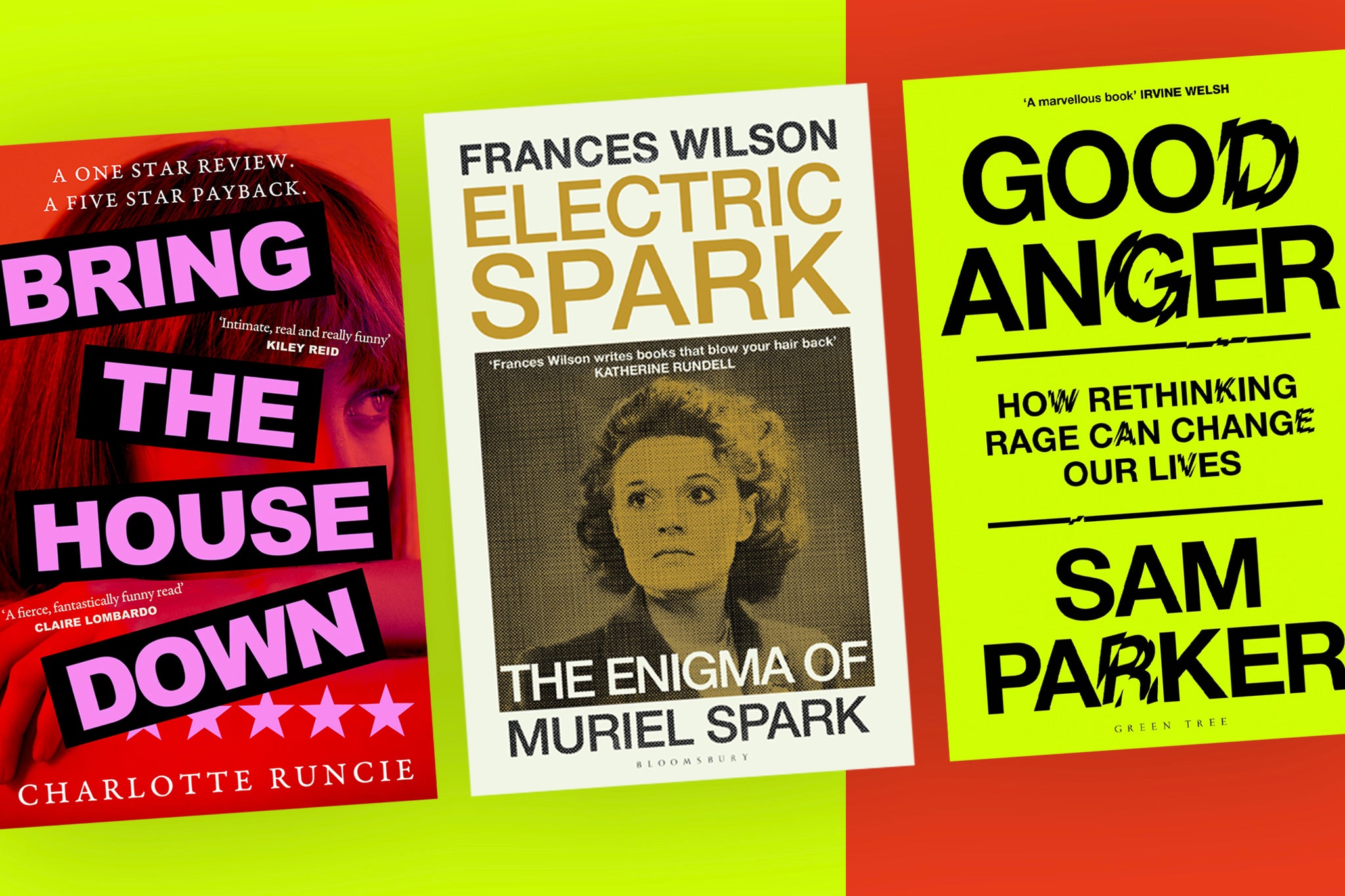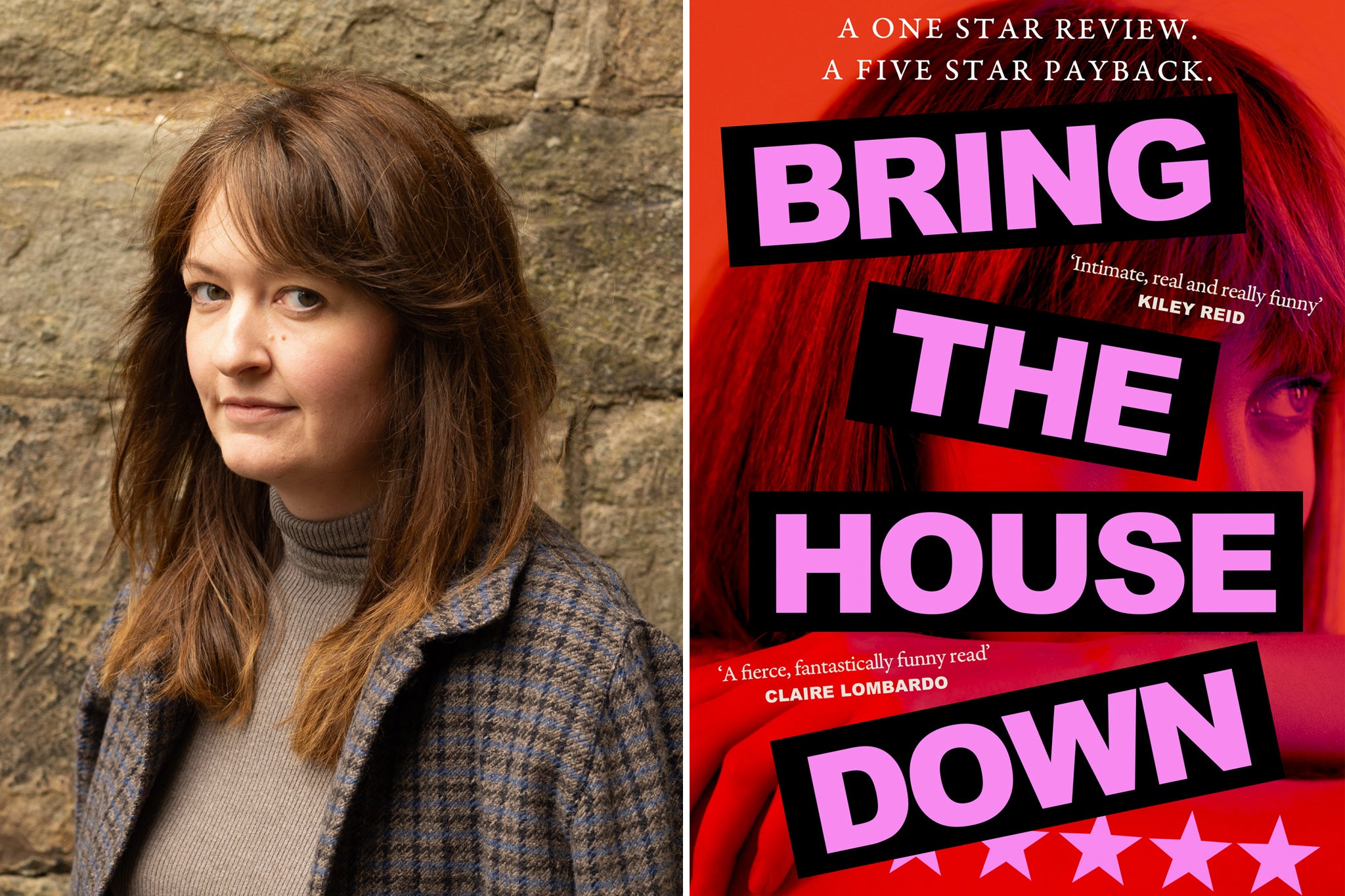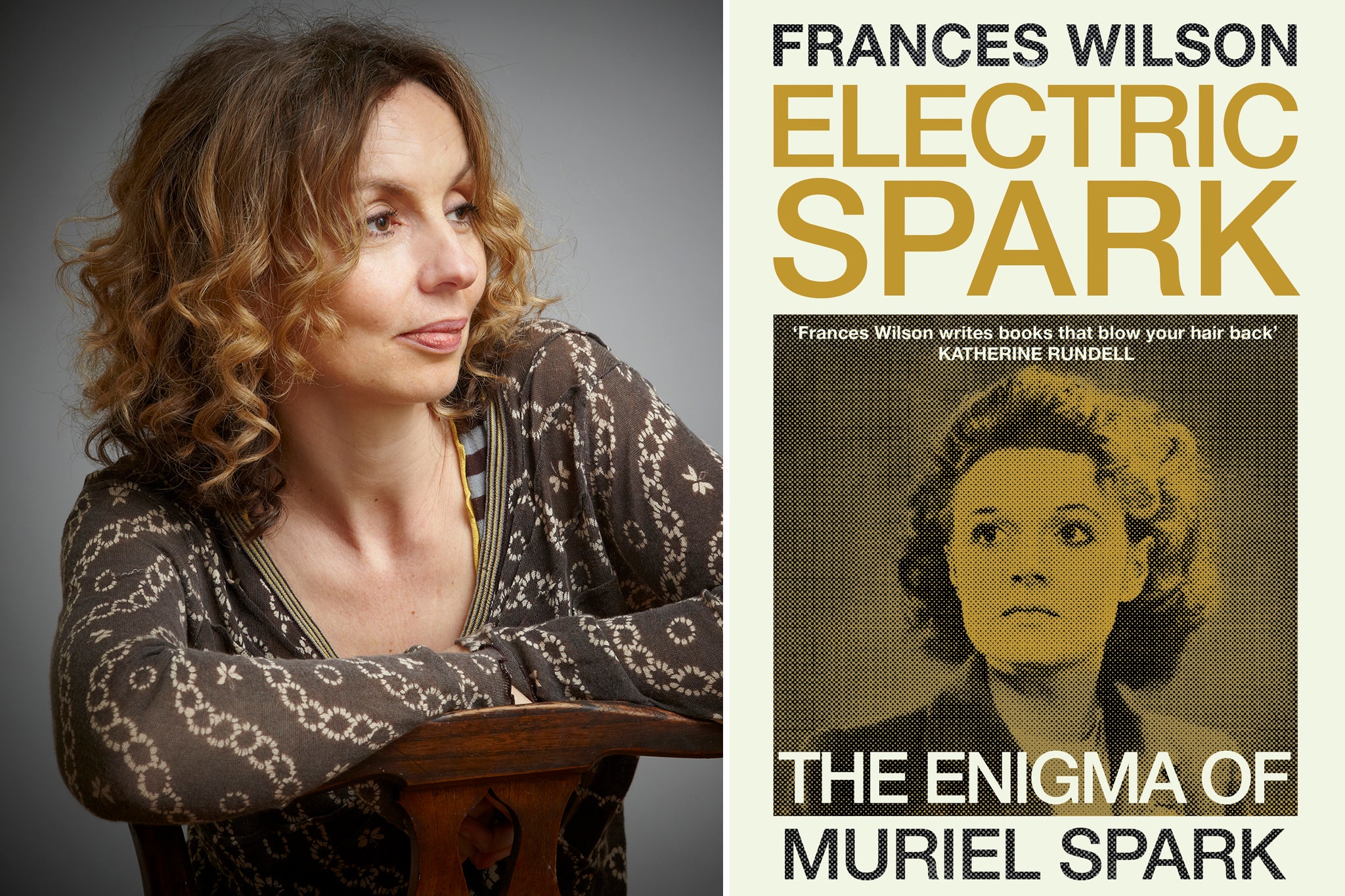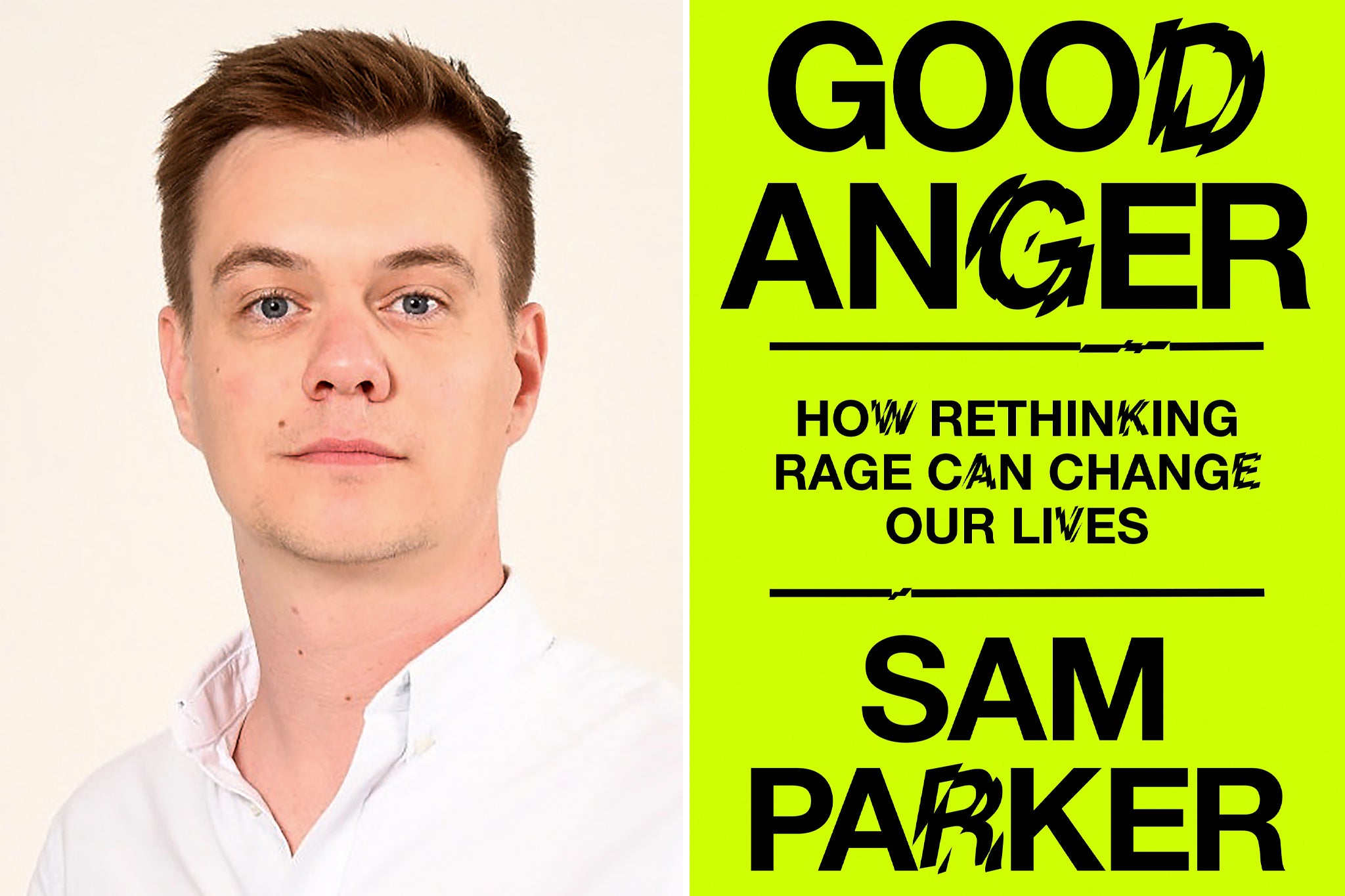Books of the Month: What to read this June, from a witty revenge tale to a persuasive defence of rage
Martin Chilton shares his June reading highlights


Most casual viewers who have watched footage of the bizarre goose-stepping ceremony sporadically held at the Wagah border post, by rival soldiers from India and Pakistan, will surely raise a smile at Sam Dalrymple’s description of it as looking like something “that wouldn’t be out of place in Monty Python”.
There is little else cheering in Dalrymple’s excellent Shattered Lands: Five Partitions and the Making of Modern Asia (William Collins), which expertly examines the way the Indian empire was divided into 12 separate nation states between 1931 and 1971. It is a disturbing story of hatred, violence and treachery. There was British deceit too, by the way, in playing down the true size of the Indian empire. “Maps depicting it in its entirety were only published in top secrecy,” states Dalrymple, whose book is packed with riveting detail.
Meanwhile, the intricacies of the universe’s “mechanisms” are explored in Joanne Baker’s Starwatchers: A History of Discovery in the Night Sky (Bloomsbury), a thoughtful blend of science and history. Her book also carries worrying warnings about what humans are doing in space today – “using it just as a playground”, as she puts it, “or worse a war zone, ripping it off, ignoring its cultural significance for everyone on earth”.
Two new fiction books also worth flagging up are Wendy Erskine’s debut novel The Benefactors (Sceptre), a funny and dark novel about family life, set in Northern Ireland, and Joyce Carol Oates’s Fox (Fourth Estate), the disturbing tale of a paedophile teacher drawn to girls with “delicate, doll-like features”. It’s long (672 pages) but suspenseful.
The choices for novel, biography and non-fiction book of the month are reviewed in full below.
Novel of the Month: Bring the House Down by Charlotte Runcie
★★★★★

The warning signs about chief theatre critic Alex Lyons can be spotted early in Charlotte Runcie’s debut novel, which is set over three weeks at the Edinburgh Fringe. On the train from King’s Cross to Scotland, he tells his fellow 34-year-old newspaper colleague Sophie Rigden: “Since I turned 30, getting laid has become embarrassingly easy.”
He gets laid pretty quickly in Edinburgh, too, seducing a younger woman called Hayley Sinclair, who has no idea that earlier that same evening he had written a one-star review eviscerating her show, Climate Emergence-She. When she discovers the truth of his shockingly mendacious behaviour, she takes revenge in lethal fashion, reinventing her show as THE ALEX LYONS EXPERIENCE and triggering a cultural and social backlash against “British media’s most notorious f***boy”.
Runcie is a former colleague at The Telegraph, and her account of arts journalism is sharp, shrewd, and witty, as she portrays how Hayley skewers the privileged Alex, the son of a famous actress. As one character remarks: “He’s just another sexist, straight white guy hack… there are thousands of Alexes.” At the Summerhall media party, where Alex’s behaviour is the hot topic of the night, Sophie overhears someone say, “find me a critic that isn’t an arsehole”. Ah, quite.
There is a good running joke about what it’s like to write newspaper obituaries (I can testify, it’s a pretty odd and macabre business, especially the “oven-ready” kind intended for those who have not yet popped their clogs), along with compelling observations about what it’s really like to be an arts writer covering a fervent festival.
Bring the House Down is full of deft humour (free jazz is described as “like a musical panic attack”), although I think the key to its appeal is the powerful characters and the consuming drama of the meltdown. While “Hayley v Alex” makes up the central drama, the beating heart of the novel is Sophie. Through her, Runcie explores with great feeling the loneliness and terror of young motherhood, the grief of losing your own mother at a young age and the insecurities we all have about love and sexual appeal.
Lots of moments from this compelling tale of betrayal will stay with you. For me it was the heartbreaking letter Alex’s 17-year-old “conquest” Lavinia sends to Hayley, in which she describes his behaviour towards her (when he was a family friend, by the way) – and why it remains, years later, an indelible memory of “the bleakest moment of my adolescence”. This is a stunning debut, one that I’m sure will be binge-read by many.
‘Bring the House Down’ by Charlotte Runcie is published by The Borough Press on 5 June, £16.99
Biography of the Month: Electric Spark: The Enigma of Muriel Spark by Frances Wilson
★★★★★

I’ve always enjoyed Muriel Spark’s droll wit, and there is plenty on offer in Frances Wilson’s biography of the author behind so many superb novels, including The Prime of Miss Jean Brodie. Spark, born in Edinburgh in 1918, was only five feet one (“Had I been any smaller I could have joined the circus,” she quipped), but she packed a mighty literary punch.
Wilson’s excellent Electric Spark: The Enigma of Muriel Spark focuses on the writer’s early years, offering an enlightening account of her formative experiences. Those years were certainly eventful: full of bitter splits, bad relationships, espionage, poverty, and mental health problems. She was a “bad picker” of men – demonstrated in the choice of her weird, volatile husband Ossie, who was 13 years her senior. Ossie was, she admitted, “a borderline case” – an observation she followed by the biting punchline, “and I didn’t like what I found on either side of the border”.
Wilson expertly dissects the author’s writing: Spark wrote nothing of any depth about her own father Barney – or any other father, for that matter, rarely described marriages, always had a blackmail plot, and regularly devised scenarios in which women were killed by deranged men.
Electric Spark also paints a damning picture of the 1950s literary world, one in which male poets, jealous of Spark’s talent, did their best to belittle her. The worst offender (among many contenders) was Rayner Heppenstall, who dismissed her as “cold, arrogant, spiteful and rather mad”. Prior to these insults, Rayner had attempted to rape Spark, a sexual assault he excused as “frolicsomeness”.
While Wilson weaves together numerous intriguing strands – including Spark’s time among bigots in Rhodesia, her quirky conversion to Catholicism, her breakdowns – the book does skirt over one strange episode in which Spark’s neglect caused the death of her cat Bluebell.
I am not sure I was closer to truly understanding Spark the woman by the end of the book, but Wilson presents the whole case file with skill, leaving it to the reader to decide what they make of such an enigmatic character. The biography is also a welcome reminder to return to a gloriously talented novelist.
Electric Spark had me wincing at the account of her terrible last years. Spark had surgery on her eyes, her kidney, and a hip replacement that went disastrously wrong. She had a femur sawn in half; the sciatic nerve was sewn into the wound, and the resulting horrific infection required seven further operations to repair. Now that is an awful memento mori.
‘Electric Spark: The Enigma of Muriel Spark’ by Frances Wilson is published by Bloomsbury Circus on 5 June, £25
Non-fiction Book of the Month: ‘Good Anger: How Rethinking Rage Can Change Our Lives’ by Sam Parker
★★★★★

The amount of stress, sadness and anger in the world is the highest on record, according to data in Sam Parker’s book. It is, however, seemingly good for business. Donald Trump embraced the “mantle of anger” to further his political career, and fury is an emotion routinely exploited by social media billionaires. In Parker’s Good Anger: How Rethinking Rage Can Change Our Lives, he details that Facebook prioritises posts that attract angry emoji reactions in people’s feeds and that (X) Twitter “actually trains us to communicate more angrily the more we use it”.
Good Anger is packed with such insights about technology, history, psychology, and science, but what makes it so powerful and engaging a read is that the author guides us through the stigmatised subject with a candid account of his own battle to understand the benefits of “good anger”.
“If you ever feel bad about having unresolved daddy issues, take comfort in the fact they go pretty far back in the human psyche,” Parker remarks wryly. His recollection of the conversation he had with his own father on a grey coastal walk – when Parker broached the subject of why he had started having therapy only to be asked how much it cost – made me snort with laughter.
There are interviews and anecdotes galore among fascinating chapters on “Anger and the Body”, “Anger Online” and “Anger in Love”. In “The Anger Advantage at Work”, Parker, a senior editor at British GQ, explores what happens when the person you are angry with is the person in charge of you – and why “leaning into anger” can be a way to find mental peace and a healthy perspective. Parker’s fluent book, which draws on dozens of stimulating examples – from Aristotle to Tony Soprano – has wisdom to offer about tackling unhappiness.
Whatever your own background or temperament, there is much to digest and utilise in this moving story of recovery and renewal, especially if you share his trait of internalising emotions. Above all, Good Anger is a potent defence of a vilified emotion – and a compelling invitation to sit with it a little while longer.
‘Good Anger: How Rethinking Rage Can Change Our Lives’ by Sam Parker is published by Bloomsbury on 5 June, £20



Join our commenting forum
Join thought-provoking conversations, follow other Independent readers and see their replies
Comments